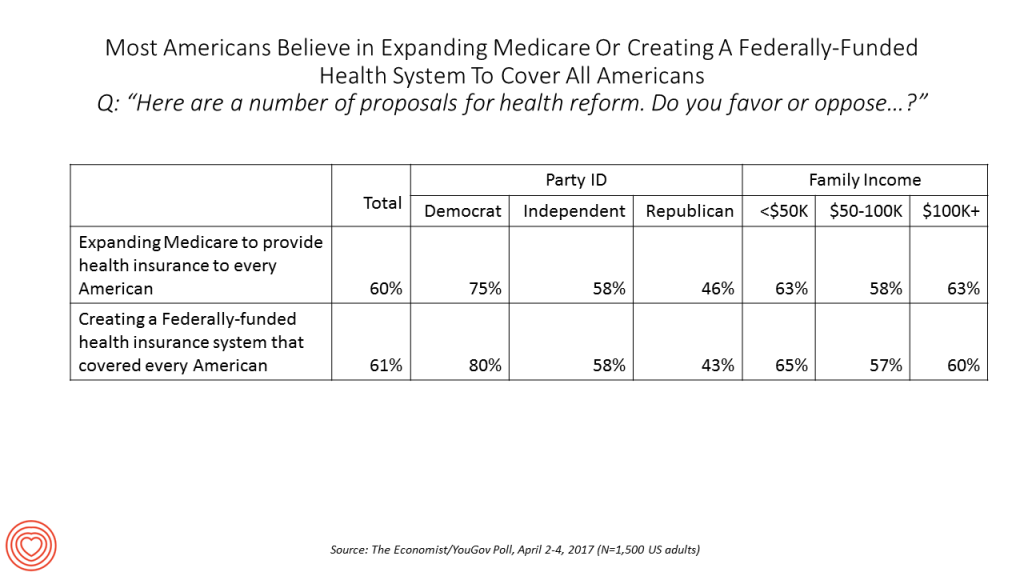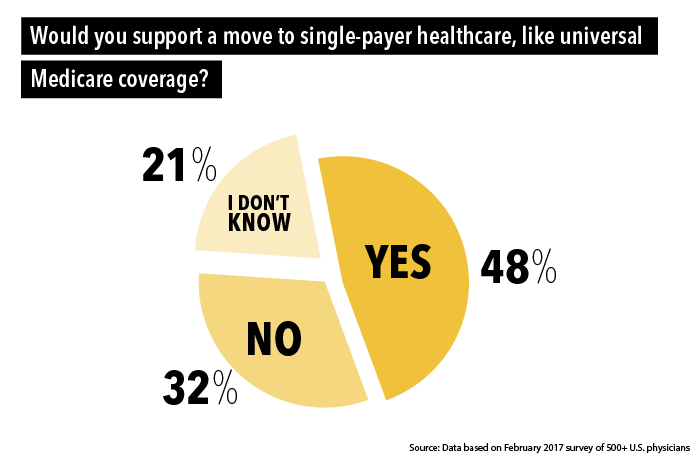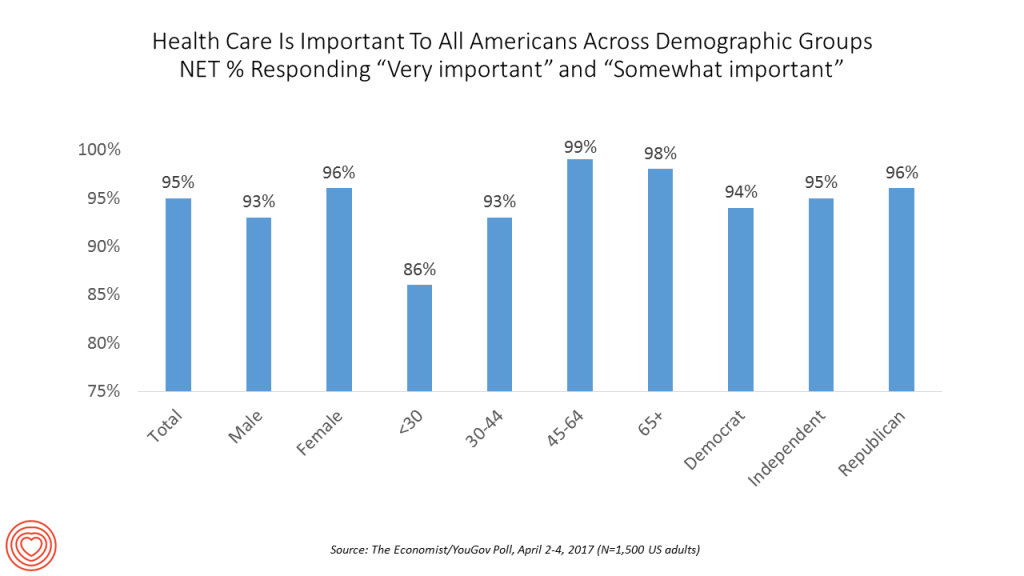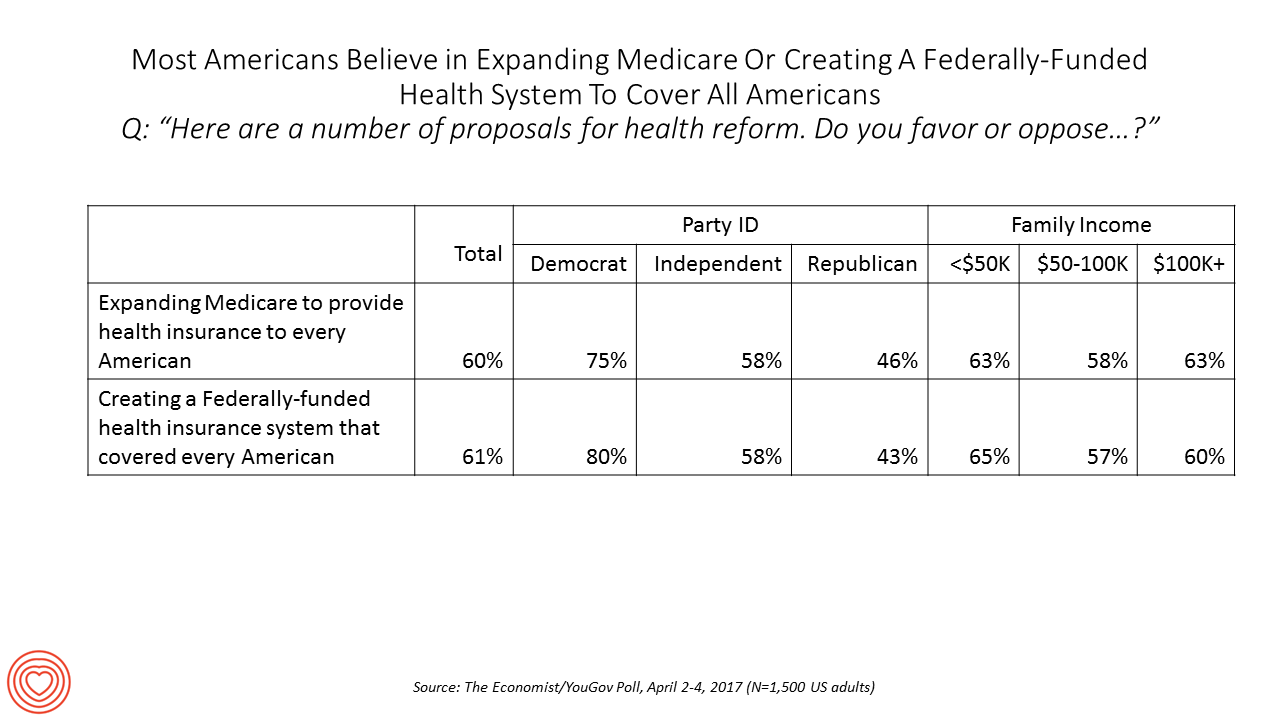 Most US adults favor some kind of national health care plan, based on an Economist/YouGov poll conducted in April 2017.
Most US adults favor some kind of national health care plan, based on an Economist/YouGov poll conducted in April 2017.
Six in ten people are for expanding so-called “Medicare for All,” where the health plan that currently serves older Americans would extend to all U.S. health citizens. Six in ten people would also favor a Federally-funded health insurance system that would cover all Americans — that is, universal health care.
The table details this poll question by political party identification and family income. At least 3 in 4 Democrats would be more likely to favor either of the two healthcare reform concepts. Six in 10 Independents would, and over 40% of Republicans.
Slightly more Republicans, 46%, would be more likely to favor expanding Medicare-for-All versus creating a new national universal health insurance system (43%).
Consumer views on national health care slightly vary by income for each policy choice. Note that the same percent of people, 63%, favor the Medicare-for-All option whether in the lowest family income segment, under $50K, or the highest, over $100K.
There aren’t major statistical differences in other demographic categories, like gender, or age groups. One interesting age group difference is that people who are 45-64 are more likely to favor either health plan option compared with other age groups — a sign of more stress when it comes to financial wellness and health insurance insecurity for middle-aged people, perhaps.
Health Populi’s Hot Points: I’ve just returned from 12 days in Europe, splitting time between London, England, and Florence, Italy. I spent time with people involved in healthcare in both towns, and return to the U.S. health reform scene with a fresh perspective. That’s why I wanted to cover this Economist/YouGov poll on Americans’ views on national health care on my first day back to the U.S. in the Health Populi blog. (FYI, for the past week and a half, my posts have focused on healthcare learnings in the UK and Italy, which I hope you will dig into).
Both of these countries cover their citizens through national health plans, which vary by structure and financing nuances but are national plans, nonetheless.
Both of these countries also spend much more per capita on social care than on healthcare, compared with the U.S.
 Both of these countries’ public health outcomes surpass those of U.S. health citizens for major stats like mortality (infant and adult) and obesity rates, and Americans see the doctor less frequently than other nations’ consumers, according to the Commonwealth Fund’s analysis of OECD data.
Both of these countries’ public health outcomes surpass those of U.S. health citizens for major stats like mortality (infant and adult) and obesity rates, and Americans see the doctor less frequently than other nations’ consumers, according to the Commonwealth Fund’s analysis of OECD data.
About one-half of U.S. physicians now favor a national single-payer health system, according to a survey released by LinkedIn earlier this year.
“Insurance is driving physicians mad,” wrote an analyst of the LinkedIn physician survey results.
Physicians and consumers alike in the U.S. are all dealing with the madness, stress, and financial un-wellness that mar health insurance and healthcare in America.
Whether the doctor or patient is a Democrat, Independent, or Republican, the numbers are clear: most people (including nearly half of people who identify as Republican), favor some flavor of national healthcare.
 One more point: nearly everyone in America says that health care is important to them, the Economist/YouGov survey learned.
One more point: nearly everyone in America says that health care is important to them, the Economist/YouGov survey learned.





 Thank you FeedSpot for
Thank you FeedSpot for